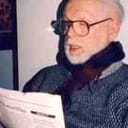Stay in the Loop
BSR publishes on a weekly schedule, with an email newsletter every Wednesday and Thursday morning. There’s no paywall, and subscribing is always free.
While nations dithered, he acted
One simple idea to save humanity
Is worker burnout always a loss? Not in the case of John Wood, a Microsoft exec who took a long needed break by hiking in Nepal and the Himalayas. There he met a Nepalese "education resource officer" who invited him to visit a school in a neighboring village.
Wood was stunned by its poverty. In that dilapidated classroom he inspected the school's "library." Its few books included a Danielle Steele romance and a Lonely Planet guide to Mongolia. And in any case, the tiny collection was kept under lock and key— to protect the books from the children.
As Wood left the village, his guide exclaimed sadly, "Perhaps, sir, you will come back with books."
Did he ever. Wood e-mailed his friends, asking for donations. Within two months he had collected more than 3,000 books.
Like Andrew Carnegie
The following year Wood and his father returned with eight book-bearing donkeys. The looks on the faces of the Nepalese children moved him to quit Microsoft altogether, and in 1999 he founded a not-for-profit called Room to Read. This Andrew Carnegie of the developing world had a new career. Starting in Nepal, Wood and his local partner, Dinesh Shrestha, helped rural communities build schools and create effective libraries.
They soon realized that many girls in developing nations were ignored because of long held prejudices. In 2000, Room to Read became the Girls' Education program, targeting young girls with a long-term commitment to their education. In 2001 Erin Ganju joined Wood and Shrestha as chief operating officer and helped Room to Read expand into Vietnam; they added Cambodia in 2002 and India in 2003.
Publishing, too
Because children's books in local languages were very hard to find they launched Local Language Publishing to create colorful books by local authors and illustrators in addition to the international books they already provided. In 2004 they opened their 1,000th library in Siem Reap, Cambodia. Later that same year, after the Asian tsunami, they decided to expand to Sri Lanka and help the community rebuild.
Never has such a complicated set of problems— essentially, the future of the human race— found such a seemingly simple solution. Microsoft's loss is definitely humanity's gain. May such "social businesses" flourish as humanity grapples one by one with its most discouraging complexities.
Wood was stunned by its poverty. In that dilapidated classroom he inspected the school's "library." Its few books included a Danielle Steele romance and a Lonely Planet guide to Mongolia. And in any case, the tiny collection was kept under lock and key— to protect the books from the children.
As Wood left the village, his guide exclaimed sadly, "Perhaps, sir, you will come back with books."
Did he ever. Wood e-mailed his friends, asking for donations. Within two months he had collected more than 3,000 books.
Like Andrew Carnegie
The following year Wood and his father returned with eight book-bearing donkeys. The looks on the faces of the Nepalese children moved him to quit Microsoft altogether, and in 1999 he founded a not-for-profit called Room to Read. This Andrew Carnegie of the developing world had a new career. Starting in Nepal, Wood and his local partner, Dinesh Shrestha, helped rural communities build schools and create effective libraries.
They soon realized that many girls in developing nations were ignored because of long held prejudices. In 2000, Room to Read became the Girls' Education program, targeting young girls with a long-term commitment to their education. In 2001 Erin Ganju joined Wood and Shrestha as chief operating officer and helped Room to Read expand into Vietnam; they added Cambodia in 2002 and India in 2003.
Publishing, too
Because children's books in local languages were very hard to find they launched Local Language Publishing to create colorful books by local authors and illustrators in addition to the international books they already provided. In 2004 they opened their 1,000th library in Siem Reap, Cambodia. Later that same year, after the Asian tsunami, they decided to expand to Sri Lanka and help the community rebuild.
Never has such a complicated set of problems— essentially, the future of the human race— found such a seemingly simple solution. Microsoft's loss is definitely humanity's gain. May such "social businesses" flourish as humanity grapples one by one with its most discouraging complexities.
What, When, Where
Room to Read. 111 Sutter Street, San Francisco CA 94104. (415) 839-4400 or www.roomtoread.org.
Sign up for our newsletter
All of the week's new articles, all in one place. Sign up for the free weekly BSR newsletters, and don't miss a conversation.

 Patrick D. Hazard
Patrick D. Hazard